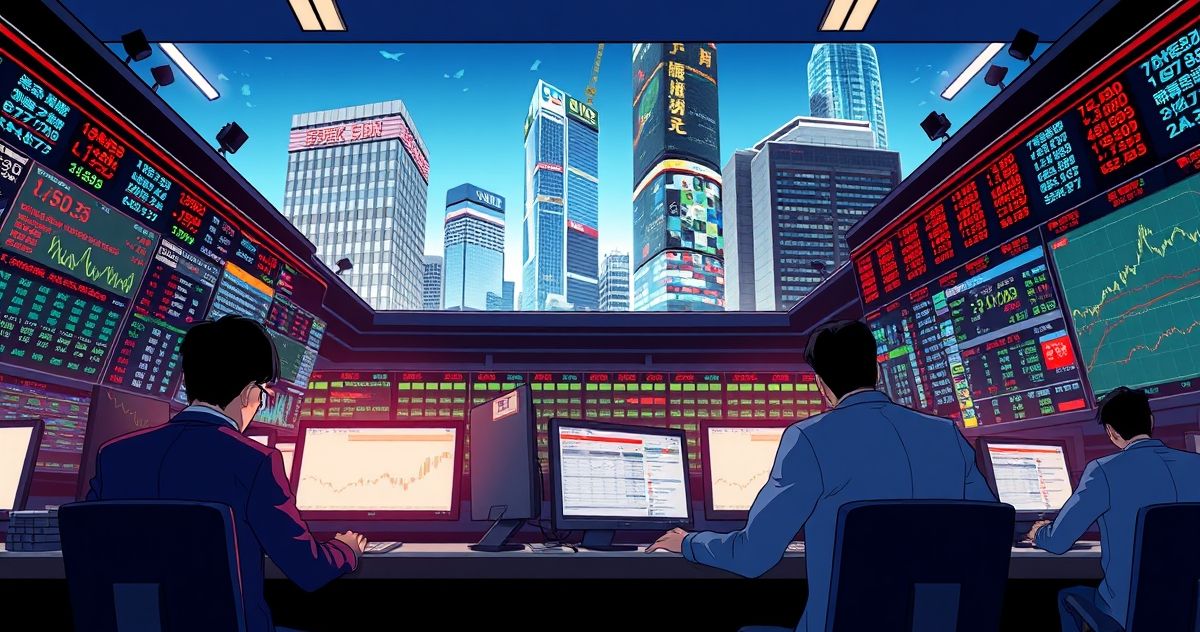
South Korea's stock market is entering a new phase in the second half of 2025. Despite global economic uncertainties, Korea's economic resilience and the growth of innovative companies are capturing investors' attention.
KOSPI Rise and Market Outlook
The KOSPI index has shown steady growth throughout July, hovering around the 2,600 mark. Technology and biotech stocks are particularly driving market momentum, raising investor expectations. Major semiconductor leaders including Samsung Electronics and SK Hynix are showing strength backed by increasing global AI chip demand.
Securities industry experts present cautious optimism for the second half domestic stock market. Lee Jae-min, analyst at Korea Investment Securities, notes that global economic recovery combined with improved domestic corporate performance provides sufficient upward momentum for the market, though attention to external variables remains necessary.
Subtle Changes in Real Estate Market
The real estate market shows diverging trends by region. Apartment prices in Seoul's Gangnam area maintain their upward trajectory, but the rate of increase is slowing. Conversely, Seoul suburbs and regional cities face mounting price adjustment pressures as property listings increase.
According to Real Estate 114, Seoul apartment sales price growth was 0.02% week-on-week in the third week of July, a significant slowdown. Areas outside Gangnam's four districts are increasingly showing downward trends, highlighting market polarization.
Financial Policy and Interest Rate Outlook
The Bank of Korea's monetary policy direction remains a key market concern. Recent stabilization in inflation rates has reduced the need for additional rate hikes, though premature rate cuts appear difficult considering global inflationary pressures and exchange rate volatility.
A Bank of Korea official indicated that the current 3.25% base rate appropriately balances price stability and economic growth, suggesting the likelihood of maintaining current rates for the near term.
Corporate Performance and Investment Trends
Major domestic companies' second-quarter earnings announcements show generally positive results. Export companies particularly benefit from won weakness effects and overseas demand recovery, recording strong performance.
Samsung Electronics anticipates significant year-over-year performance improvement due to memory semiconductor market recovery, while Hyundai Motor expects positive results from increased electric vehicle sales and expansion of high-profit models.
New Growth Engines and Future Industries
Government policies for fostering new growth engines are attracting business attention. Investment and support for future core industries including artificial intelligence, bio-health, and green technology are expanding.
Digital transformation and carbon neutrality investments under the K-New Deal 2.0 policy are expected to create new jobs while providing fresh momentum for economic growth.
SMEs and Startup Ecosystem
According to recent Ministry of SMEs and Startups announcements, venture investment in the first half reached 2.8 trillion won, up 15% year-over-year. AI, big data, and mobility startups are receiving particular attention.
Startup ecosystem activation is evaluated positively for enhancing economic dynamism and providing new growth momentum. However, the impact of weakened global investor sentiment and rising interest rates on venture investment requires continuous monitoring.
Second Half Economic Outlook
Experts forecast moderate growth for Korea's economy in the second half. External demand recovery and increased domestic consumption are expected to support economic growth, though global economic uncertainties and geopolitical risks remain variables.
The Korea Development Institute (KDI) projects 2.3% economic growth this year, analyzing that private consumption recovery and facility investment increases will drive growth. However, export growth deceleration and construction investment sluggishness are cited as growth constraining factors.
Despite various internal and external challenges, Korea's economy is projected to maintain stable growth based on innovation capacity and resilience. Securing future growth engines and structural innovation will be crucial for establishing a sustainable development foundation.
Original: https://trendy.storydot.kr/economy/korea-economy-outlook-2025-second-half


0 Comments